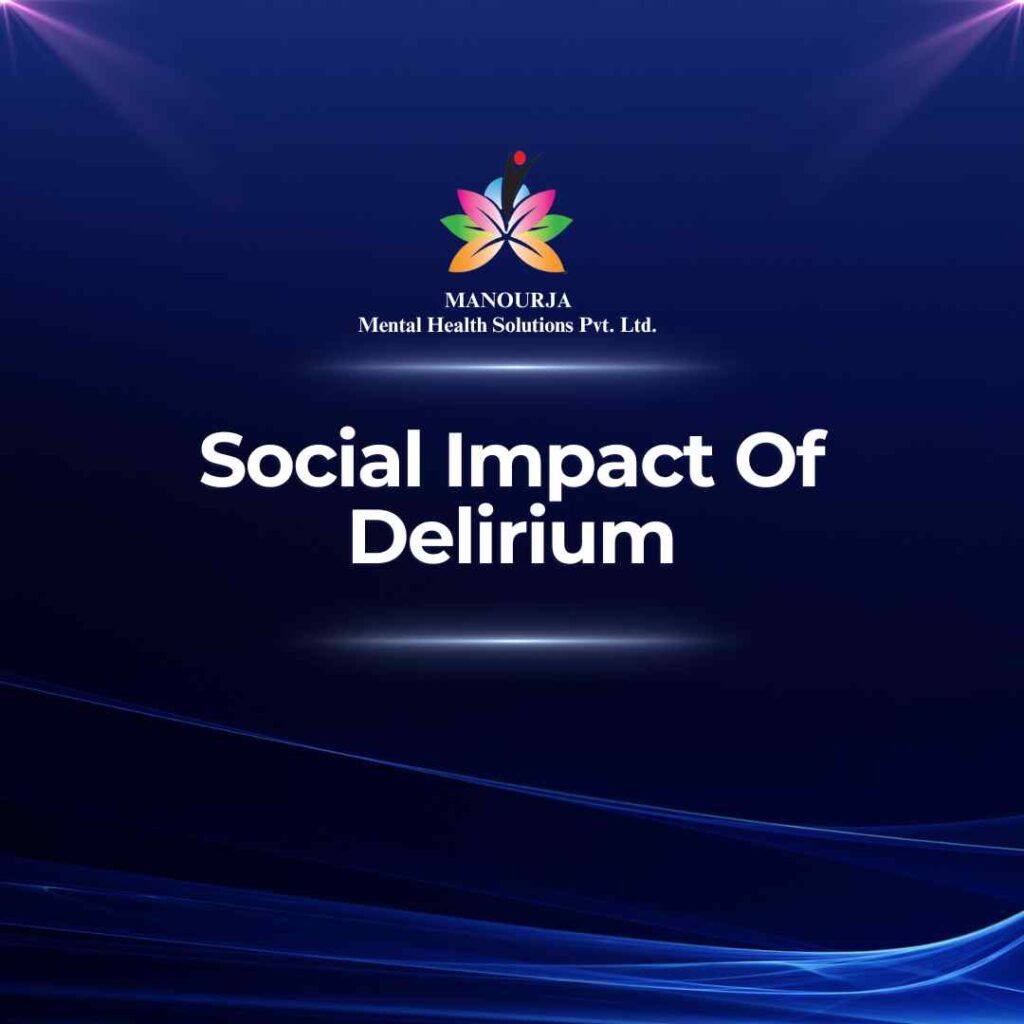Social Impact of Delirium

The social impact of delirium extends beyond the individual experiencing the acute cognitive disturbance to affect relationships, social interactions, and overall community dynamics.
Here are key aspects of the social impact of delirium:
- Strained Relationships: Delirium can strain relationships with family members, friends, and caregivers. The unpredictable and often challenging behaviors associated with delirium, such as confusion, agitation, or withdrawal, can be difficult for loved ones to understand and manage.
- Caregiver Burden: Family members and caregivers often bear the responsibility of providing care and support to individuals experiencing delirium. The demanding nature of caregiving during a delirious episode can lead to physical, emotional, and financial strain on caregivers.
- Disruption of Social Roles: Delirium can disrupt an individual’s ability to fulfill social roles within their family, workplace, or community. For example, a person in the midst of a delirious episode may be unable to participate in social activities or fulfill responsibilities, leading to a sense of disconnection.
- Stigmatization: Misunderstandings about delirium and its causes may contribute to stigmatization of individuals who have experienced it. Lack of awareness about the medical nature of delirium may lead to unfair judgments or social isolation.
- Impact on Employment: Delirium can affect an individual’s ability to perform job-related duties. This may result in absenteeism, reduced productivity, or even job loss. The social consequences of employment-related challenges can further compound the impact of delirium.
- Community Awareness: Delirium is often under-recognized in the broader community. Lack of awareness can hinder timely intervention and support for individuals experiencing delirium and their families. Increasing community awareness is crucial for fostering understanding and empathy.
- Long-Term Social Consequences: Individuals who have experienced delirium may face long-term social consequences, including challenges in rebuilding relationships and reestablishing social roles. The aftermath of delirium, especially if accompanied by cognitive deficits, can pose ongoing challenges to social integration.
Addressing the social impact of delirium involves a comprehensive approach:
- Education and Awareness Campaigns: Raising awareness about delirium within communities can help reduce stigmatization and improve understanding of the condition.
- Support for Caregivers: Providing resources and support for caregivers can help alleviate the burden they may experience while caring for someone with delirium.
- Workplace Accommodations: Employers may need to consider accommodations for individuals who have experienced delirium to facilitate their return to work and maintain social connections.
- Community Integration Programs: Rehabilitation programs that focus on social reintegration and rebuilding social skills can be beneficial for individuals recovering from delirium.
Understanding the social impact of delirium is crucial for developing holistic approaches to care that address not only the medical aspects but also the broader social and relational dimensions of the condition
At MANOURJA, we believe in the transformative power of counseling. Our experienced therapists offer a safe and supportive space where you can explore your thoughts, emotions, and challenges. Through personalized counselling sessions, we’ll work together to develop coping strategies, build resilience, and achieve lasting positive change. Discover the path to a healthier, happier you with MANOURJA counselling services.
MANOURJA Rehabilitation Services
At MANOURJA, we’re dedicated to helping you in rebuild your life, after difficult times. Our rehabilitation services focus on understanding what you need to move forward, whether you’re recovering from addiction, trauma, or any psychological – social challenges. We create personalized plans, that are all about helping you, regain your strength and find hope again. With a caring team by your side, you’ll have the support to make real progress and take steps toward a brighter, healthier future.
